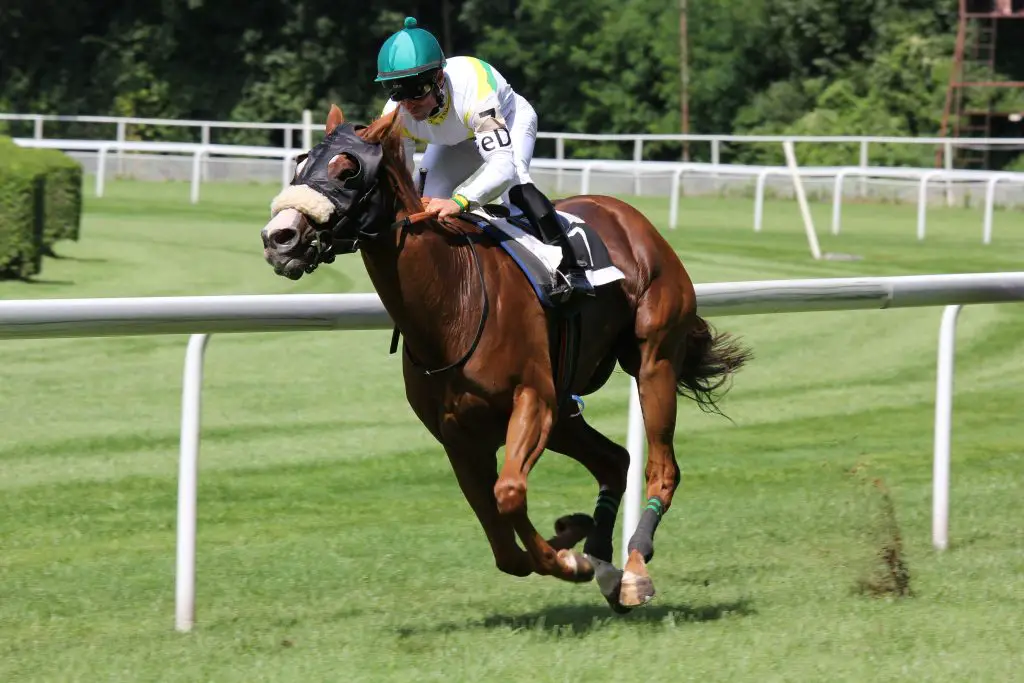This is a Guest Post by Alex @MacroOps which was posted originally here: What Traders Can Learn From Professional Horse Betting and is reposted here with permission.
Thegreek.com, a horse racing blog, discusses the “seven deadly sins” losing horse bettors commit. Repeat these sins in your trading and you’ll suffer the same fate as the losers at the track.
Here are the four most important sins to avoid:
Deadly Sin No.1: The most important thing is picking winners.
Wrong! Professional horse bettors will tell you that trying to pick the winner of the race is a failed strategy and that it’s far more important to get value. What’s “value?” Consider this: A horse that you handicap as a legitimate even-money favorite should win about half the time. So that horse is a bad play at 4/5 or less. A horse that you analyze should win about one in four times the race is run, should be about 3/1. That horse won’t win as often as the even money shot but if you can get value, say 5/1 or higher, you’ll make money in the long run.
The few horse bettors good enough to make a living know it’s not about picking a winner. It’s about identifying positive expected value. Oftentimes that means the lower probability play is the better bet.
If an option is currently priced to profit 1 in 10 times, but you think it’ll profit 2 in 10 times, then buy it. It’s a value. It doesn’t matter that most of the time the option will expire worthless. Over the long haul, the buyer will walk away profitable.
Deadly Sin No.3: You should bet more on a horse you really like, such as your “best bet.”
Ridiculous. Why bet if you don’t like who you’re betting? Put another way, any horse worth betting is one worth betting significantly. Sophisticated bettors usually bet about the same amount on every bet. After all, as one professional gambler told me, “If I knew what my ‘best bets’ were I’d only bet those.” A “best bet” is a media creation. If you know what you’re doing, your best bet always should be the next bet you make.
Professional track gamblers understand that bet size is incredibly important. Sizing your bets based on “hunches” leaves you susceptible to accidently betting big on losers and tiny on winners.
Imagine three trades where you’re right on the first two and wrong on the last. And since you thought you had a “hot hand”, you bet really big on that last loser. This would result in the losses from the last trade cancelling out the gains from your first two winners. Your account would end up net negative.
Sizing up has a time and a place in trading. Soros would bet big when the stars aligned. But you need lots of experience before you can start sizing up on what you think are great trades.
Until you’re seasoned and able to decipher between a good and great bet, keep your position sizes consistent. If you don’t, you risk going broke from bad luck.
Deadly Sin No. 4: Statistical betting trends are important.
Actually, they’re not. “Technical handicapping,” as it’s called, is another of those manufactured disciplines used by professional touts, not professional horse racing bettors. Mostly, technical handicapping—wherein statistics are employed to predict an outcome—are little more than “backfitting,” a practice where someone makes up a theory to fit a set of numbers. It’s a lazy handicapping shortcut and no replacement for hard analysis.
Ever wonder why those really smart quants with the fancy degrees end up blowing up? It’s because they have too much trust in a model tightly fit to past data.
Studying the past can help you figure out what’ll happen in the future, but only within reason. If you create a trading model based on the premise that the future will play out exactly like the past… it will fail.
Keep historically based assumptions as simple as possible. That will help thread the needle between useful insight and robustness.
Deadly Sin No. 7: Specialize in certain aspects of the game and pick your spots.
Why limit yourself? If you never bet grass races or stay away from maidens you may be missing some great betting opportunities. When you gamble, having more options always is preferable.
That’s why our team at Macro Ops trades global macro. If stocks dry up, we have the flexibility to drop into the grains market or currencies or any other market where there’s high expected value profit opportunities. The more markets you learn to trade, the easier it is to trade only the most attractive setups.
For more posts and information about Alex @MacroOps you can check out his website Macro-Ops.com.
